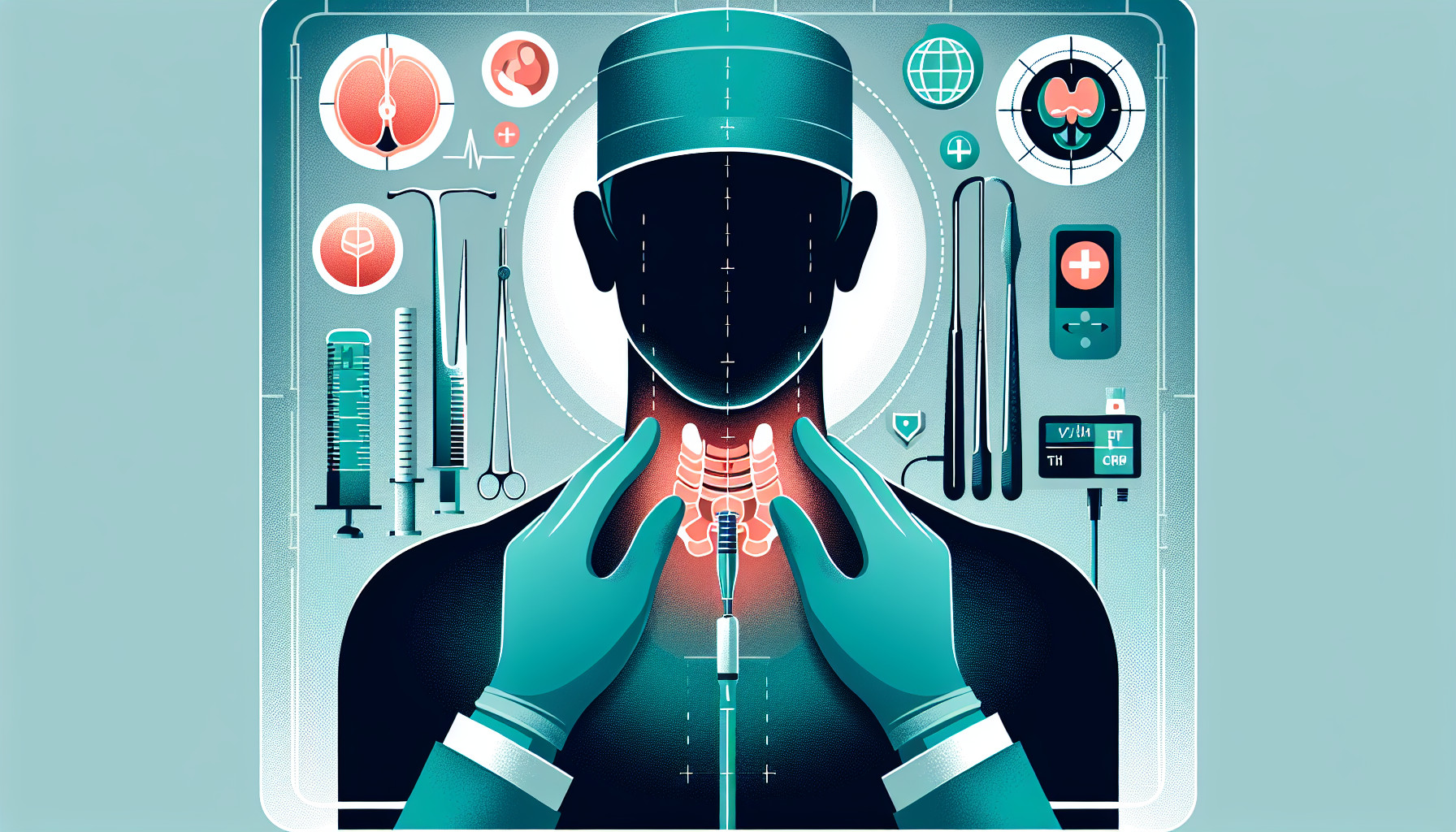Our Summary
This research paper is about an illness called secondary hyperparathyroidism, which can be a result of chronic kidney disease. This illness can be treated with medication or surgery. If medication doesn’t work, patients can have surgery to remove the parathyroid glands, which is a permanent cure. There are three types of surgery that are commonly used.
In the study, the authors looked at 160 patients who had surgery for secondary hyperparathyroidism. Of these patients, 27 had previously had a type of surgery called subtotal parathyroidectomy or had extra parathyroid glands and their illness had come back. The authors mostly did a type of surgery called total parathyroidectomy, which they believe gives the best results.
They studied the patients based on things like age and gender, clinical symptoms, and the levels of a hormone called parathormone before and after surgery. They also looked at how many patients’ illness came back and how many had to have more surgery. They found that in some cases, the glands were in an unusual place or there were extra glands. In over 96% of patients who had total parathyroidectomy, their illness did not come back.
Based on their results, the authors concluded that total parathyroidectomy is the best choice of surgery for patients with secondary hyperparathyroidism when medication doesn’t work. This can prevent the illness from coming back and can correct the levels of metabolic parameters.
FAQs
- What is a parathyroidectomy and when is it recommended for patients?
- What are the different surgical techniques used for treating secondary hyperparathyroidism?
- What were the results of the study on patients who underwent total parathyroidectomy for secondary hyperparathyroidism?
Doctor’s Tip
A helpful tip a doctor might tell a patient about parathyroidectomy is to follow all post-operative instructions carefully, including taking prescribed medications, attending follow-up appointments, and maintaining a healthy lifestyle to prevent recurrence of secondary hyperparathyroidism. It is also important to communicate any concerning symptoms or changes in health to your healthcare provider promptly.
Suitable For
Patients who are typically recommended for parathyroidectomy include those with secondary hyperparathyroidism as a result of chronic kidney disease, particularly when pharmacotherapy fails to control the condition. In cases where there is gland ectopy or supernumerary parathyroids, surgery may also be recommended. Total parathyroidectomy is often considered the intervention of choice for these patients, as it has been shown to offer the best results in terms of preventing recurrence of the disease and correcting metabolic parameters.
Timeline
Before parathyroidectomy:
- Patient is diagnosed with secondary hyperparathyroidism as a result of chronic kidney disease.
- Pharmacotherapy is attempted to treat the condition.
- If pharmacotherapy fails, patient is recommended for surgery.
- Various surgical techniques are discussed with the patient, including total parathyroidectomy.
After parathyroidectomy:
- Patient undergoes total parathyroidectomy surgery.
- Demographic criteria, paraclinical balance, clinical symptomatology, pre- and postoperative intact parathormone values are monitored.
- In some cases, gland ectopy or supernumerary parathyroids are discovered during surgery.
- Follow-up appointments are scheduled to monitor for recurrence of secondary hyperparathyroidism.
- Results show a high percentage of patients with total parathyroidectomy did not experience recurrence of the disease.
- Conclusion is drawn that total parathyroidectomy is the intervention of choice for patients with secondary hyperparathyroidism when pharmacotherapy fails.
What to Ask Your Doctor
- What are the reasons for recommending a parathyroidectomy for my secondary hyperparathyroidism?
- What are the potential risks and complications associated with the surgery?
- How will the surgery be performed (total parathyroidectomy, subtotal parathyroidectomy, or parathyroidectomy with autotransplantation)?
- What is the expected recovery time after the surgery?
- What are the chances of recurrence of secondary hyperparathyroidism after the surgery?
- Will I need to take any medications or undergo any additional treatments after the surgery?
- How will the surgery affect my kidney function and other metabolic parameters?
- Are there any dietary or lifestyle changes I should make after the surgery?
- How often will I need to follow up with you after the surgery?
- Are there any long-term implications or considerations I should be aware of following the surgery?
Reference
Authors: Iorga C, Iorga CR, Andreiana I, Bengulescu I, Constantin T, Strambu V. Journal: Front Endocrinol (Lausanne). 2023 Nov 22;14:1191914. doi: 10.3389/fendo.2023.1191914. eCollection 2023. PMID: 38075043
